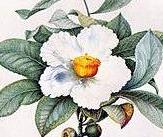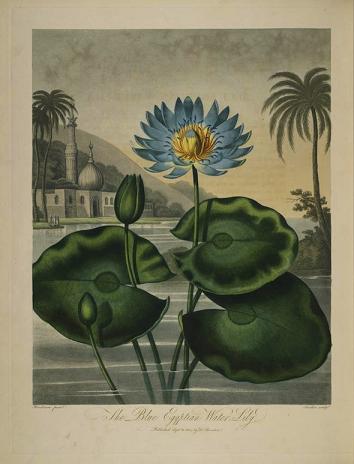
"Nature is made to conspire with spirit to emancipate us". – Ralph Waldo Emerson
For some, the earthly paradise is a place of natural beauty found in gorgeous landscapes and well-sculpted natural environments. For others, the earthly paradise is a place where there is spiritual unity with God. In his essay “Nature,” transcendentalist Ralph Waldo Emerson hints that an earthly paradise is one where God, humans, and nature are closely connected when he states:
Therefore, that spirit, that is, the Supreme Being, does not build up nature around us, but puts it forth through us, as the life of the tree puts forth new branches and leaves through the pores of the old. As a plant upon the earth, so a man rests upon the bosom of God; he is nourished by unfailing fountains, and draws, at his need, inexhaustible power.Though Emerson doesn’t explicitly state it, these lines imply that the earthly paradise is found in nature. With these words, Emerson also indicates that there is a peculiarly unique connection between spirituality, nature and humans. By stating that God puts nature through us, Emerson also implies that an earthly paradise must include the natural world. This statement appears to reflect Emerson’s interpretation of natural theology which was, according Daniel Payne, “the belief that human intellect can discover truths about God by studying the natural (or created) world” (194). For Emerson, people’s willingness to embrace the natural environment is key to their ability to ultimately connect with God and subsequently experience the earthly paradise.
Traces of Emerson’s ideas about Nature’s spiritual quality can be seen in American texts preceding his essay. Literary works by poet Phillis Wheatley show an Emersonian idea of nature as a reflection of God’s presence in the earth and the environment. Wheatley states in her poem “Thoughts on the Works of Providence” that
All-wise Almighty Providence we traceWith these words, Wheatley echoes Emerson’s belief that humans can find and connect with God in nature. Later in the poem, Wheatley extends this idea when she writes:
In trees, and plants, and all the flow'ry race;
As clear as in the nobler frame of man,
All lovely copies of the Maker's plan.
Infinite Love where'er we turn our eyesThis idea of nature being used as a vehicle to connect God and humans dates back to the book of Genesis in chapter 3 and the story of the fall of man in the Garden of Eden. It is in the Garden of Eden that God came looking for Adam and Eve after they were deceived by the serpent. Ultimately, nature is a place where humans connect with God truth and intimacy.
Appears: this ev'ry creature's wants supplies;
This most is heard in Nature’s constant voice,
This makes the morn, and this the eve rejoice;
This bids the fost'ring rains and dews descend
To nourish all, to serve one gen'ral end...
"But let us rely on Providence, and by studying and contemplating the works and power of the Creator, learn wisdom and understanding in the economy of nature, and be seriously attentive to the divine monitor within".– William Bartram
Bartram, William. Travels through North and South Carolina, Georgia, East and West Florida.
Emerson, Ralph Waldo. “Nature.”
Wheatley, Phillis. Poems on Various Subjects, Religious and Moral.
Albanese, Catherine L. Nature Religion in America: From the Algonkian Indians to the New Age. Chicago: Chicago UP, 1990. Print.
Buell, Lawrence. The Environmental Imagination: Thoreau, Nature Writing, and the Formation of American Culture. Cambridge: Belknap P of Harvard UP, 1995. Print.
Dunlap, Thomas R. Faith in Nature: Environmentalism as Religious Quest. Seattle: Washington UP, 2004. Print.
Gatta, John Making Nature Sacred: Literature, Religion, and Environment from the Puritans to the Present. New York: Oxford UP, 2004. Print.
Grove, Richard H. Green Imperialism: Colonial Expansion, Tropical Island Edens, and the Origins of Environmentalism, 1600-1800. Cambridge: Cambridge UP, 1995. Print.
Hardack, Richard. Not Altogether Human: Pantheism and the Dark Nature of the American Renaissance . Amherst: U of Massachusetts P, 2012. Print.
Payne, Daniel G. “Emerson's Natural Theology: John Burroughs And The "Church" Of Latter Day Transcendentalism.” ATQ 21.3 (2007): 191-205. Academic Search Complete. Web. 26 Apr. 2013.
Taylor, Bron Raymond. Dark Green Religion: Nature Spirituality and the Planetary Future. Berkeley: U of California P, 2010. Print.

